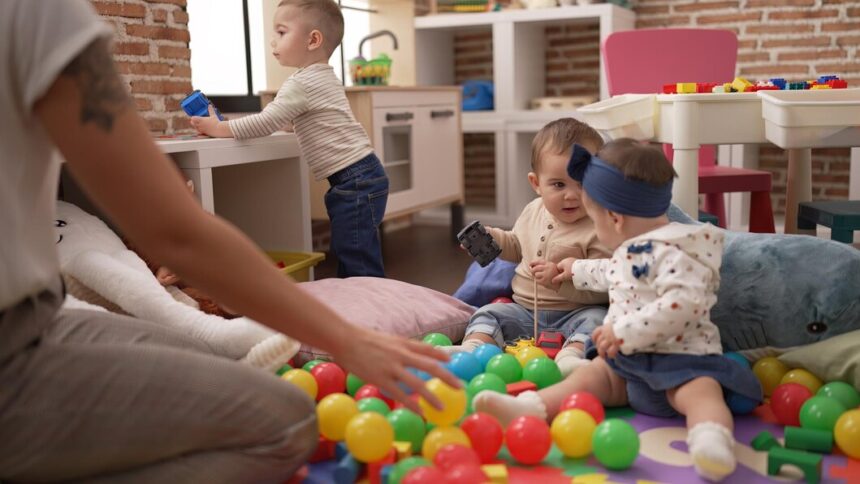At 20 months old, your baby is rapidly approaching the toddler years and reaching significant developmental milestones. This period is marked by notable advancements in physical skills, cognitive abilities, and social interactions. Here’s a look at some of the key milestones you might observe in a 20-month-old:
Physical Development
- Gross Motor Skills: At this stage, toddlers are gaining better control over their movements. Your child may walk confidently, climb on furniture, and even attempt to run. They might also enjoy activities like kicking a ball or climbing stairs with help.
- Fine Motor Skills: Fine motor skills are improving as well. Your baby might be able to stack blocks, turn pages in a book, and use utensils with increasing dexterity. They may also start showing an interest in drawing with crayons.
Cognitive Development
- Language Skills: Vocabulary is expanding, and your child might be using 10 to 20 words or more. They might also start combining words into simple phrases like “more juice” or “big truck.” Understanding of common commands and questions is growing, and they may begin to recognize and name familiar objects and people.
- Problem-Solving Abilities: Toddlers at this age are becoming more adept at solving simple problems. They might figure out how to operate toys with buttons or levers and enjoy activities that involve sorting shapes or fitting objects into their respective slots.
Social and Emotional Development
- Social Interaction: Social skills are developing, and your child may show interest in playing alongside other children, though parallel play (playing near others without direct interaction) is still common. They might also start expressing preferences for certain people or toys.
- Emotional Expression: Emotions are becoming more varied and complex. Your child may show frustration, excitement, and affection more clearly. They might also begin to understand and express simple emotions such as happiness or sadness.
Sensory Development
- Exploration: Sensory exploration is a big part of learning at this age. Your child may be drawn to touching different textures, listening to various sounds, and exploring their environment with curiosity.
- Imitation: Imitation is a key way toddlers learn. They might mimic actions and behaviors they see from adults and older children, such as pretending to talk on the phone or cooking with toy kitchen utensils.
Tips for Supporting Development
- Encourage Exploration: Provide a safe environment for your child to explore and play. Offer a variety of toys and activities that stimulate their senses and promote learning.
- Engage in Conversation: Talk to your child often and encourage them to express themselves. Reading books together and singing songs can also support language development.
- Foster Social Interaction: Arrange playdates or group activities to help your child develop social skills and learn to interact with peers.
- Provide Positive Reinforcement: Celebrate milestones and achievements, no matter how small, to encourage confidence and motivation.
Every child develops at their own pace, so variations in milestones are normal. If you have concerns about your child’s development, consulting with a pediatrician or early childhood specialist can provide guidance and support.










